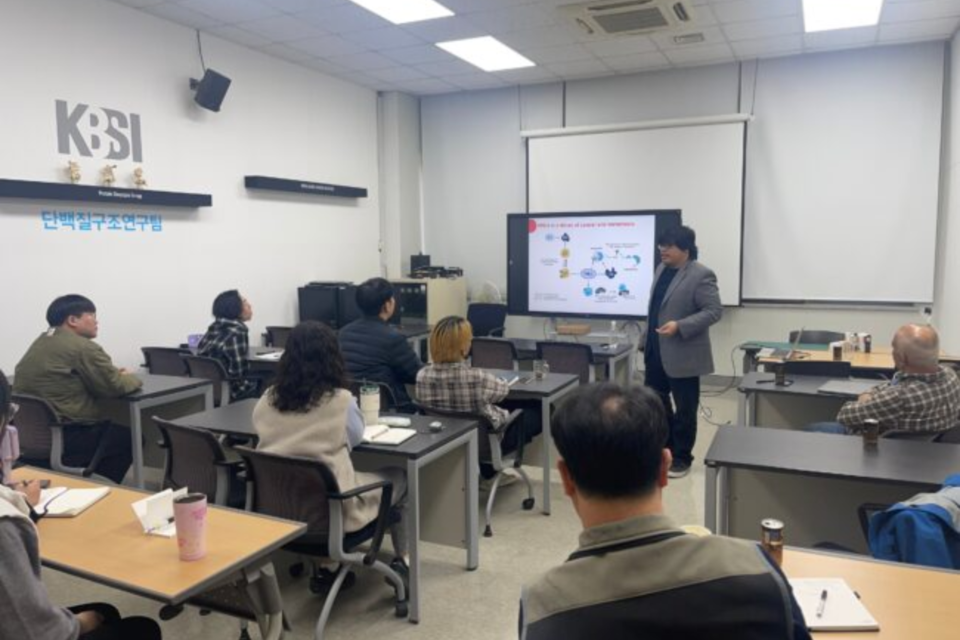According to the American Cancer Society, it’s estimated that more than 63,000 Georgians were diagnosed with cancer for the first time last year. Nationwide, it’s estimated to have been more than 2 million.
Despite those numbers, a significant breakthrough in oncology is emerging at Georgia Southern University. Mark dela Cerna, Ph.D., assistant professor of biochemistry, and a team of students have discovered a method to inhibit certain cancer-causing proteins and metastasis, the spread of cancer cells from the place where they first formed to another part of the body.
“We’re trying to find medications that work on metastasis,” said dela Cerna. “We’re looking for molecules that eventually could be developed as drugs that particularly target cancer metastasis.”
Metastasis can oftentimes be caused by a cell protein called phosphatase of regenerating liver three, or PRL-3. For years, dela Cerna and others have been looking for molecules that can block PRL-3 from binding and spreading.
“If you turn off this protein, you can minimize cancer aggressiveness and metastasis,” said dela Cerna. “When you want to develop a drug, you want to make sure that you have evidence that your molecule actually interacts specifically with your target protein. To our knowledge, that molecule that we found is kind of the first molecule that has a molecular mechanism where we know it binds.”
Thanks to collaborations with Jessica Blackburn, Ph.D. at the University of Kentucky, Donghan Lee, Ph.D. at the Korea Basic Science Institute, Deji Agbowuro at South University – Savannah, and Brandon Quillian, Ph.D. assistant professor of organic chemistry at Georgia Southern, the first molecule they found that “turns off” the PRL-3 protein was discovered in 2022. Since then, dela Cerna traveled to South Korea to use one of the world’s strongest NMR spectrometers — a powerful magnet that can be used to study interactions of proteins like PRL-3— which has been instrumental in understanding how these molecules bind with PRL-3.
Finding that one successful molecule in 2022 has since led to the discovery of additional molecules that bind this metastasizing-causing protein.
“We found one, and we can find others,” he said. “We’re finding molecules that are similar looking, which tells us that maybe there’s some hint that certain parts of this molecule are necessary for binding this protein. We consider it a scaffold for the building around it. But at the same time, it’s motivating that we have that initial validation.”
The program has been supported by a National Institute of Health grant, which has also allowed dela Cerna to bring in three undergraduate students and one graduate student to assist him in additional tests to see which molecules can bind to PRL-3.
Grace Bennett, who is working toward a master’s in applied physical science at Georgia Southern, is that graduate student. She says she doesn’t feel the pressure of trying to stop cancer, but rather finds the vigor in solving the puzzle that has impacted her family.
“I have had a lot of people in my family have different health-related issues,” she said. “I originally wanted to be a doctor and see what I could do. Since working in the research lab, I feel like this is the best of both worlds. I love what I’m doing, but I’m also still contributing to the biomedical field on the other side of it.”
Last month, dela Cerna was invited to give a talk to the department of structural biology at the Korea Basic Science Institute, which is the home of the world-famous spectrometer his team used for cancer-fighting research.
While challenges remain, dela Cerna’s research offers hope for targeted therapies that could significantly reduce cancer-related deaths caused by metastasis.
“Could one of these inhibitors that we’re finding eventually be a commercially available drug that’s given to patients to cure their cancer?” asked Bennett. “It’s a possibility.”




